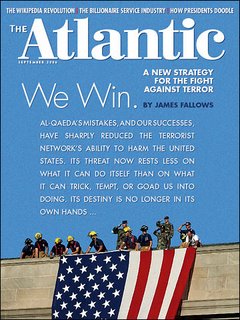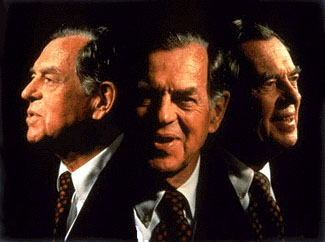The Roots - Game Theory
Game Theory is better. The experimentation that dragged on the last two records has not disappeared, but it has never worked so well as on GT. Malik B is back and great to hear on 2 cuts. Black Thought sounds spectacular, and his parts of Long Time contend for best moment of the entire Roots catalogue. It sounds like the band has somehow found a new level of cohesion. On the last two records there were moments I wasn't down with. I can say that every beat on GT is working. At times in the past, the band could have used some sense of restraint idea-wise. On this record its hard to tell if they found the restraint or grew enough to make the ideas work. Where on Phrenology, a hard rock track just sounds like a bad idea, on GT, the hard rave-synth thumper that is Here I Come comes together, ending in a too-short ?uestlove drummapella.
Then the jam of the album, "Long Time." I noticed on Letterman the Tuesday night a guitarist I didn't recognize. He's a big part of what makes this song and album so great. On the album credits, strings are attributed to Capt Kirk. More mysterious is the other unknown name, "Knuckles," responsible for "The '!!!!'," whatever that means. All over the album are players from the OkayPlayer stable: familiar folks like Dice Raw and Malik B, but also newbies like John-John, Porn, Mercedes Martinez, and Peedi Peedi (who gives a worthy effort, but is the weak link in the middle of the otherwise perfect "Long Time").
The tone on GT maintains the gritty realist feel found on each record since "Illadelph." Politics, race, crime, death, all the familiar issues that make the Roots the thought provoking act that they are haven't disappeared, thank goodness. Although I do enjoy a little innocent jam now and again like at the end of "The Tipping Point" when the band rips up George Kranz's "Din Da Da," the light moments on this album are few.
One gripe: the copy of the album that I bought this evening at midnight from Meijer is clean of the minimal cursing and drug references. It is not labeled "clean." Not that big of a deal, but a little annoying.
Lastly, the guardian angel of this record is J Dilla, whose beats bookend the record, which ends with a beautiful tribute to the passed Detroit producer who was a true hip hop genius of the highest. Dilla, R.I.P.





